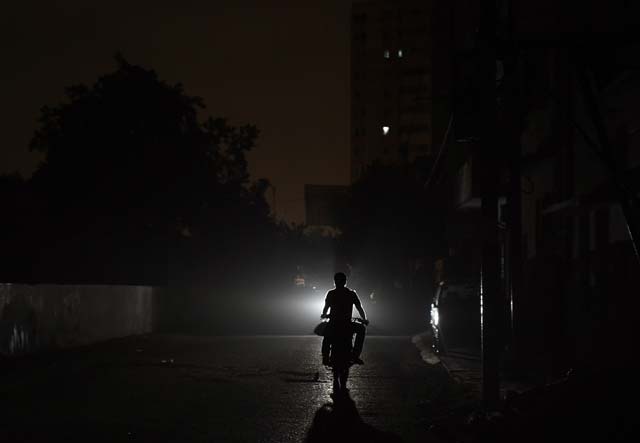PTBP Web Desk
The Supreme Court of Pakistan made a significant ruling on Thursday, unanimously nullifying the previous verdict related to the defection clause under Article 63-A of the Constitution.
The court’s decision came after hearing a review petition challenging the earlier interpretation of this article, which has significant implications for Pakistan’s political landscape, especially concerning horse trading and party loyalty among parliamentarians.
A newly formed five-member bench, led by Chief Justice Qazi Faez Isa, delivered the short verdict on this high-profile case. The bench also comprised Justices Ameenuddin, Jamal Mandokhel, Mazhar Alam Miankhail, and Naeem Afghan. The short ruling was announced after Justice Munib Akhtar recused himself from the case, leading to the reconstitution of the bench.
The decision to nullify the earlier verdict was expected after Justice Akhtar’s departure, as the new bench entertained a review petition challenging the interpretation of Article 63-A. Chief Justice Qazi Faez Isa stated that while the short verdict was announced, the detailed explanation of the judgment will follow later. This marks a pivotal moment in the ongoing debate over the legal boundaries and political implications of defection in the Pakistani parliament.
Earlier in the day, Barrister Ali Zafar, who represents former Prime Minister Imran Khan, boycotted the Supreme Court’s proceedings, objecting to the composition of the five-member bench. When the hearing began, Chief Justice Isa asked Barrister Zafar if he had any objections to being appointed as amicus curiae (friend of the court), a role typically offered to experienced lawyers to assist in complex cases.
Barrister Zafar, while not objecting to the court’s order directly, expressed his dissatisfaction with the makeup of the bench, stating that it was not appropriate for the case. Zafar conveyed that Imran Khan had instructed him not to proceed before this particular bench. In response, Chief Justice Isa reminded him that, as a senior lawyer and former bar president, he was an officer of the court and should not indulge in such comments during proceedings.
The exchange between Barrister Zafar and Chief Justice Isa became heated, with Zafar insisting that he would not proceed with the case if Imran Khan was not allowed to speak. Zafar expressed concerns that the government was making constitutional amendments that could potentially open the doors to horse trading, something that the earlier verdict on Article 63-A had aimed to curb.
Chief Justice Isa, however, warned Zafar about the seriousness of his statements and cautioned him against making any remarks that could be interpreted as contempt of court. He emphasized the importance of maintaining respect between senior lawyers and the judiciary.
One of the core issues discussed during the hearing was the fear that nullifying the earlier interpretation of Article 63-A would once again make horse trading prevalent in Pakistan’s politics. Barrister Ali Zafar argued that the earlier decision under Article 63-A had helped restrict horse trading, but the nullification of the verdict would reverse those gains.
Chief Justice Isa, however, questioned why such fear surrounded a single court decision and urged the involved parties to let the country move forward. He stressed that the court’s role is to interpret the law in line with the Constitution and that concerns over horse trading should not influence their decision-making process.
Barrister Zafar, however, remained adamant, reiterating that he was following the instructions of Imran Khan and that they would not participate in further court proceedings related to the case.
The Chief Justice then reminded Zafar that no individual, regardless of their position, is above the law and that everyone should be treated equally in the eyes of the court.
This was not the first time tensions flared in the Supreme Court during the proceedings related to Article 63-A. The day before, a PTI representative, Mustafin Kazmi, was asked to leave the courtroom by Chief Justice Isa after a verbal altercation between the two. The Chief Justice reportedly directed security to remove Kazmi from the premises, adding to the high drama surrounding this case.
The recent ruling traces back to a 2022 petition filed by the Supreme Court Bar Association (SCBA). The Bar had filed for a review of the Supreme Court’s opinion in response to a Presidential Reference seeking interpretation of Article 63-A. The SCBA requested the court to revisit its earlier decision, particularly the part of the opinion that invalidated the votes of defecting members.
The SCBA argued that the court’s previous interpretation contradicted the Constitution’s spirit, as Article 63-A only allows for the disqualification (or de-seating) of defecting members rather than nullifying their votes. According to the petition, the court’s opinion amounted to an intervention in the democratic process and undermined parliamentary procedures.
The Supreme Court’s May 2022 decision, which was made by a five-member bench headed by former Chief Justice Umar Ata Bandial, was a split 3-2 ruling. The majority held that defecting members’ votes should not be counted in the Parliament. The ruling was seen as an effort to safeguard the integrity of democracy and prevent legislators from shifting loyalties for personal gain. However, this decision has remained a point of contention, leading to the current review.
Article 63-A of the Constitution of Pakistan is a critical provision that deals with the issue of political defection by members of Parliament. Under this article, a lawmaker who votes against their political party’s directions in three specific situations can face disqualification:
- Election of the Prime Minister or Chief Minister
- Vote of confidence or no-confidence
- Money Bill or a Constitution (amendment) Bill
The party leader must submit a written declaration of defection, which is then forwarded to the Chief Election Commissioner for final approval. If confirmed, the lawmaker’s seat is declared vacant, effectively disqualifying them.




